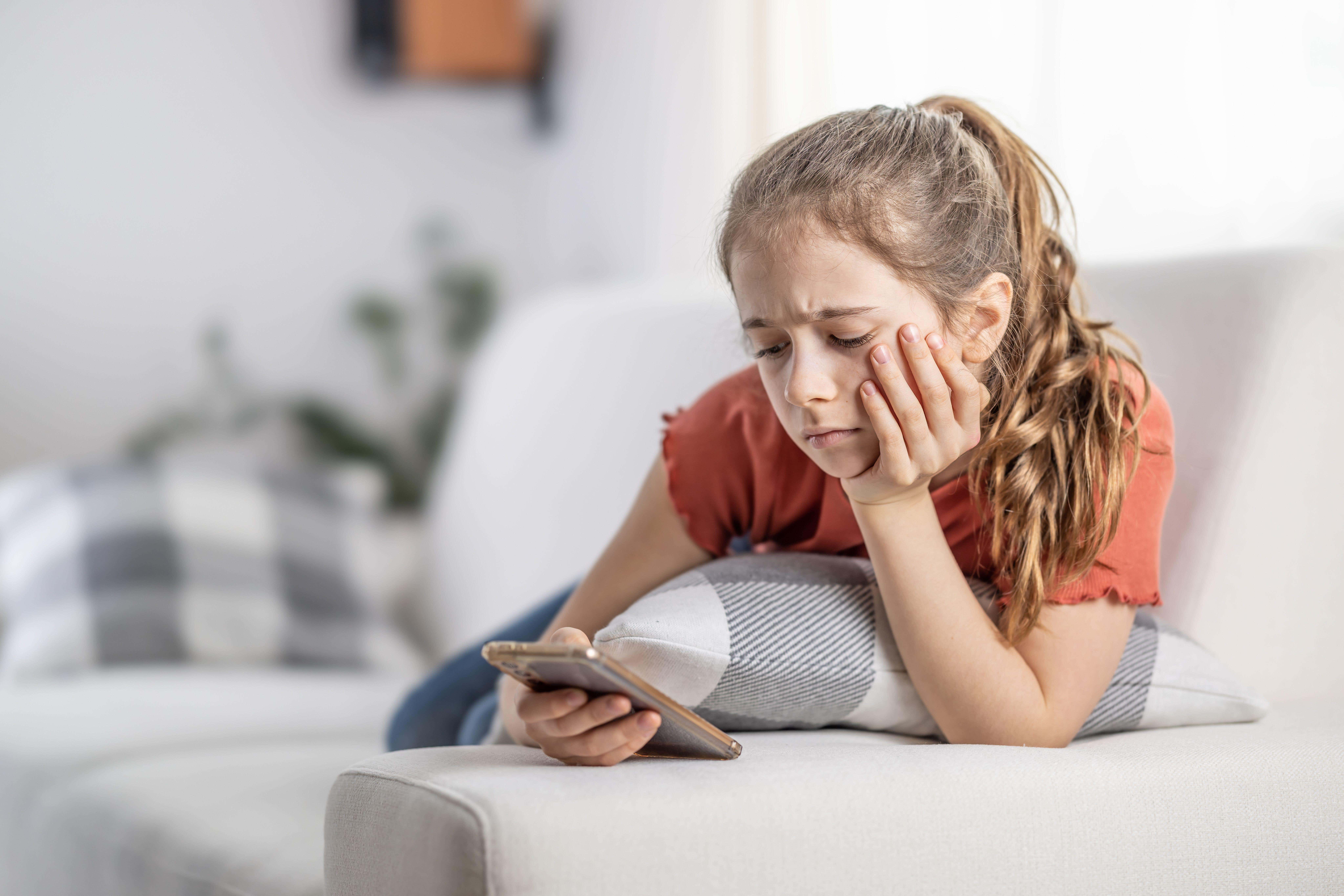Is social media is harming your child’s mental health?
Social media could be causing children all sorts of damage psychologically. Imy Brighty-Potts asks what parents can do.

Your support helps us to tell the story
From reproductive rights to climate change to Big Tech, The Independent is on the ground when the story is developing. Whether it's investigating the financials of Elon Musk's pro-Trump PAC or producing our latest documentary, 'The A Word', which shines a light on the American women fighting for reproductive rights, we know how important it is to parse out the facts from the messaging.
At such a critical moment in US history, we need reporters on the ground. Your donation allows us to keep sending journalists to speak to both sides of the story.
The Independent is trusted by Americans across the entire political spectrum. And unlike many other quality news outlets, we choose not to lock Americans out of our reporting and analysis with paywalls. We believe quality journalism should be available to everyone, paid for by those who can afford it.
Your support makes all the difference.Eight in 10 youth mental health specialists say social media is fuelling a mental health crisis, according to new research by Dove.
The brand found that 50% of children say the ‘toxic beauty culture’ on social media makes them and their peers feel anxious.
Plus, according to the 2023 Dove Self-Esteem Project Research for Kids’ Online Safety, parents’ awareness of the effect on their kids’ mental health is also increasing – 80% said it was worrying.
A Change.org petition has been launched by Global Action Plan to help protect children online, due to the rise in concern.
So how can parents tell if there’s an issue, and what can you do to help?
Signs of a problem
It can be hard to know if there is something going on if your child is not willing to talk about it.
“What we tend to see is that patterns of behaviour start to change, particularly with inappropriate content about body image, eating disorders and self-harm,” said Suzanne Alderson, author of ‘Never Let Go – How to Parent Your Child Through Mental Illness’ and founder of the charity Parenting Mental Health.
“They may start wearing long sleeves, cover their body up or stop eating with you at the table. They may get really agitated if you suggest a break from their screen.”
But, she said: “Don’t take a snapshot today and panic, take some time, make a note of changes in behaviour and see if it is consistently changing.”
Emotionally regulate yourself first
You may feel angry or upset, but if your child is struggling to regulate their emotions, it won’t help if you are doing the same.
“Any conversation has to come from us as parents being emotionally regulated. If we bring fear and distress to the conversation, it won’t work, we need to be calm,” said Alderson.
“We need to actively listen to our children and what they are saying. It might take a few conversations to get there, they may think you are judging them, or don’t understand.”
Pick where you chat carefully
“Have a conversation without an obligation to have eye contact, say while cooking or in the car. Ask them how it feels when something happens, and use other people as an example, perhaps say somebody at work has a daughter who is struggling,” she said.
“Make it non-confrontational and non-judgemental and it will build that emotional safety.”
Consider your dialogue about social media
Alderson said: “Before you have these conversations check in on what you have been saying about social media. If they hear you saying it is the worst thing ever they may feel like they cannot have that conversation with you.
“Check in on your behaviour beforehand as it will set the tone.”
Actually listen to what is being said
“The worst thing you can do is invalidate their experience,” Alderson said.
“Listen to what they are showing us or telling us. You may think you should control this or fix it. They will be getting validation from the content they are seeing online so we need to check in with our own biases, our children are not broken and we do not need to fix them.
“If you are reading this and don’t feel like you and your child are in that place then open up that dialogue, use tools like the Dove campaign and start that conversation,” added Alderson.
Report inappropriate conversations
If you are seriously concerned about conversations your child is having online, you can report it to Child Exploitation and Online Protection (CEOP) – an reporting tool for inappropriate conversations.
“It is a fine line for parents – there are underlying unmet needs,” said Alderson. “Think about what [the child] is getting from that conversation, have a calm dialogue and put safety first.
“They may not get it but in time they probably will. Have those open conversations and if you think your child is at risk, report it.”